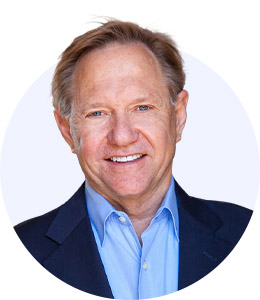A main role in my career is creating ways to build and sustain high performance. By “high performance” I mean the organization’s key success metrics. “Sustainability” is performing at a high level over time.
A few of the items I’ve focused on over the years have been retaining employees and creating great patient experiences in the healthcare sector. Due to experiencing some success in healthcare, many of my methods and books are used in non-healthcare settings as well. The need to attract and retain talent, and to provide exceptional customer service, applies to all industries. To accomplish these outcomes, the commitment to talent development must be present. Strong financial results are essential. None of this is simple or easy.
With this work has come several important learnings. One of them is that words matter. While the messenger has good intentions, how they say things can be interpreted in a way that can cause harm or, at a minimum, does not lead to people achieving the intended results. An example is when we downplay the difficulty of meeting a goal.
For many years I donated to the door prizes offered by the Association of University Programs in Health Administration (AUPHA). AUPHA is a global network of colleges, universities, faculty, individuals, and organizations dedicated to the improvement of health and healthcare delivery through excellence in healthcare management and policy education. (See www.aupha.org to learn more.) If a university wanted, they could enter their name in a drawing. Then three names would be drawn. I would then visit the selected universities/colleges at no charge. This interaction usually entailed speaking to faculty and students. It almost always included speaking in a medical center, as many of the programs are part of an academic system which includes medical schools, hospitals, and so forth.
Due to my background, a very common topic request would be how to achieve an excellent patient experience. In healthcare there are public domains that allow patients to see how a hospital is doing in this area. Patient experience is determined through a survey called HCAHPS, which stands for Hospital Consumer Assessment of Healthcare Providers and Systems (pronounced “H-caps”). To learn more, visit www.hcahpsonline.org. I did my homework prior to going into a hospital where I was presenting and discovered it was in the 23rd percentile in HCAHPS results compared to others—not good.
When I was introduced at the organization, the person said, “Quint’s focus is on soft skills. Much of what he will be talking about is simple.” I watched the reaction of those in the room. It was as if people were thinking, If these things are simple, why are they so difficult? Does he realize how hard these things are? This is something I have to be really careful about, as I have said similar things. Just because something is simple does not mean it’s easy. The truth is, if moving HCAHPS results really were simple, the organization would not be in the 23rd percentile. Please note, this person is a dedicated leader. His intent was not to minimize the work, but he did miss on his explanation.
The takeaway is that when people are told something is simple and they are not accomplishing it, it’s disheartening. The same is true of saying things like, “These are things you learned in kindergarten; things your mother told you,” or even saying that a skill is “soft.” The term “soft skills” came about to describe actions that are more people-geared versus mechanically-geared. No harm was meant. Yet over the years some may have come to think that soft skills are easier to master than other skills. This is not the case.
My main message is to be sensitive to what words are used. Empathy is important. My belief is that people want to achieve the outcomes set for them. If they are not and they are told what they are trying to do is “simple” or “common sense,” it reduces the energy they have to work hard and meet the goal. Leaders with empathy know that some things will come more naturally to some people and not so naturally to others.
I often find the best teachers are those for whom the learning or the skill did not come easily. A favorite story of mine is about one of the greatest baseball hitters ever, Ted Williams. His nickname was “The Splendid Splinter.” Hitting came naturally to him. However, he struggled as a hitting coach, for he just did not understand why some players had difficulty in this area. One day Ted shared with a hitter that he needed to follow the spin of the ball. However, it was later found out that Ted had 20/10 eyesight. This helped him see the rotation of the ball and not swing at bad balls. In other words, Ted could see the spin that most could not.
Some tips on messaging and moving the needle on results:
- Stay away from words and phrases like simple, easy, common-sense, and not too difficult, unless you really believe it.
- If a person is struggling in a particular area, study their current experience and skill set. Assuming it is not a will issue, then what skills are needed to achieve the desired results?
- Study the processes and systems. Are they conducive to results or are they making achievement more difficult?
- Identify barriers to the most important goals. For example, are there too many meetings? And while documentation can be good, are we “documenting the documentation of documenting” or “checklisting the checklist to check the checklist”? You get the point: a leader cannot build transformational relationships if transactional tasks leave them no time to do so.
- Find the bright spots. These exist in every organization. Take time to study why the results are being achieved in certain areas and what people are doing to make it happen. Then create the best way to scale what is driving the results.
- Celebrate small wins. This builds momentum and makes people want to replicate their success. Over time, celebrating the small wins leads to a consistent winning streak.
What I have described above is not easy or simple. However, done correctly, these tips drive and sustain high performance and create a better place to work. This provides for more joy in the workplace.
As always, thank you for reading and for working to make leadership better and better.







